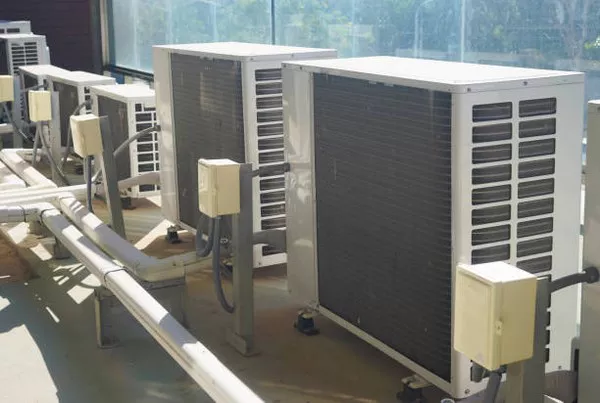As summer temperatures rise, ensuring a continuous power supply for essential appliances like air conditioning units becomes crucial. However, power outages are not uncommon, especially during severe weather conditions or unforeseen circumstances. To address this concern, many homeowners and businesses invest in generators to maintain comfort and productivity. Selecting the appropriate generator size for a 2.5-ton AC unit is paramount to ensure seamless operation and prevent damage. In this article, we delve into the factors influencing the choice of generator size, the importance of proper sizing, and practical considerations for optimal performance.
Understanding AC Unit Power Requirements:
Before determining the generator size needed to power a 2.5-ton AC unit, it’s essential to understand its power requirements. The term “ton” in air conditioning refers to the unit’s cooling capacity, not its power consumption. A 2.5-ton AC unit typically requires around 3,500 to 4,000 watts to start up (startup or surge wattage) and approximately 1,500 to 2,000 watts to maintain operation (running or rated wattage) under normal conditions.
Factors Influencing Generator Sizing:
Several factors influence the selection of an appropriate generator size to power a 2.5-ton AC unit effectively:
Startup (Surge) Wattage: AC units require a higher initial power surge to start the compressor and other components. This surge can be up to two to three times the unit’s running wattage. Therefore, it’s crucial to choose a generator with adequate surge wattage to accommodate this initial power demand without overloading the system.
Running (Rated) Wattage: Once the AC unit is running, it consumes less power than during startup. The generator’s running wattage should be sufficient to sustain the AC unit’s operation along with any additional appliances or equipment connected to it.
Efficiency and Power Factor: Consider the efficiency and power factor of both the AC unit and the generator. Some generators may have a power factor lower than 1.0, meaning they provide less usable power for certain types of loads, including motor-driven appliances like air conditioners. Factoring in these efficiencies ensures reliable performance.
Other Loads: Determine if the generator will power additional loads besides the AC unit, such as lights, refrigerators, or electronics. These loads contribute to the overall power requirement and influence the generator size needed.
Altitude and Temperature: High altitudes and extreme temperatures can affect the performance of both the AC unit and the generator. In such cases, adjustments may be necessary to account for reduced power output at higher altitudes or increased power consumption due to temperature extremes.
Importance of Proper Sizing:
Selecting the correct generator size is critical for several reasons:
Preventing Overloading: Undersized generators may struggle to meet the AC unit’s power demands, leading to frequent overloads and potential damage to both the generator and the appliance.
Ensuring Reliable Operation: A properly sized generator ensures stable and uninterrupted power supply to the AC unit, maintaining comfort and safety during power outages.
Optimizing Fuel Efficiency: Overly large generators consume more fuel than necessary, leading to higher operating costs and environmental impact. Proper sizing helps optimize fuel efficiency while meeting power requirements.
Practical Considerations:
When choosing a generator size for a 2.5-ton AC unit, consider the following practical considerations:
Generator Type: Select a generator type that suits your needs, whether portable, standby, or inverter. Each type has its advantages and limitations in terms of size, portability, and fuel efficiency.
Fuel Source: Determine the preferred fuel source for the generator, such as gasoline, diesel, propane, or natural gas, based on availability, storage capacity, and cost considerations.
Installation and Maintenance: Consider the installation requirements and maintenance procedures associated with the chosen generator size. Standby generators, for example, may require professional installation and regular maintenance to ensure optimal performance.
Budget: Assess your budgetary constraints and balance them with the need for a reliable and appropriately sized generator. Consider long-term savings in fuel costs and potential repair expenses when making your decision.
See Also How Does A Generac Generator Get It’s Power? A Comprehensive Guide
Conclusion:
Choosing the right generator size for a 2.5-ton AC unit involves understanding its power requirements, considering various factors influencing generator sizing, and ensuring proper installation and maintenance. By selecting an appropriately sized generator, homeowners and businesses can enjoy reliable power supply during outages, maintaining comfort and productivity even in challenging circumstances.

